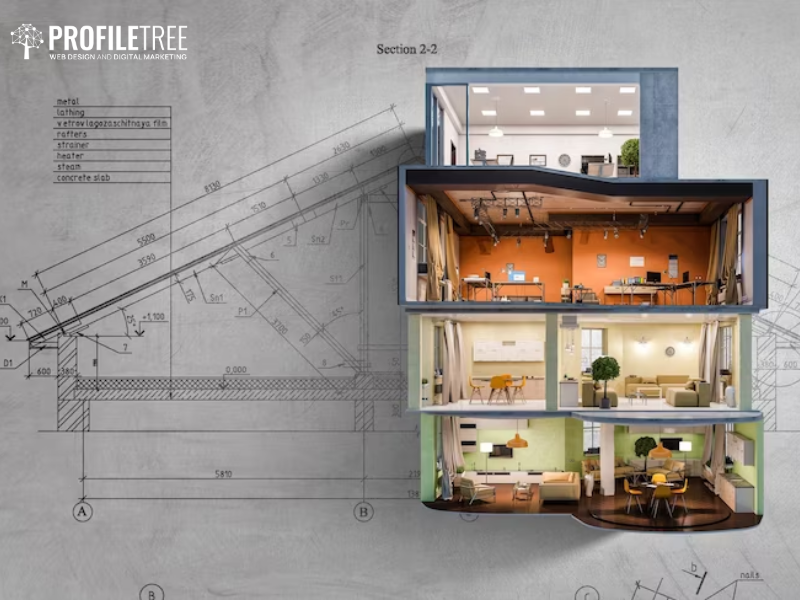Forget the dusty drafting table; the future of design is digital, and it’s powered by the precision and prowess of AutoCAD. This industry-standard software isn’t just a game-changer; it’s a gateway to a world of exciting career opportunities for AutoCAD professionals.
This article will be your blueprint for success, guiding you through the diverse landscape of high-paying AutoCAD careers. We’ll crack the code on achieving coveted certification, reveal the essential professional skills sought by top employers, and help you navigate the first steps on your journey.
So, roll up your sleeves, sharpen your digital pencil, and prepare to explore a world where imagination meets reality—a world where your AutoCAD expertise could land you your dream job.
Introduction to AutoCAD

AutoCAD, a name synonymous with precision and creativity, has revolutionised the way we design and build the world around us. From towering skyscrapers to intricate microchips, from sleek furniture to sprawling cityscapes, its impact on various industries is undeniable.
What is AutoCAD?
Imagine a powerful digital drafting board, one that transcends the limitations of physical space and unleashes a boundless canvas for your imagination. That’s essentially what AutoCAD is. It’s a computer-aided design (CAD) software program that allows users to create, edit, and view 2D and 3D models and drawings with unparalleled accuracy and detail.

From Blueprint to Reality
But AutoCAD is more than just lines and circles on a screen. It’s the bridge between imagination and reality, the tool that transforms ideas into tangible creations. Architects, engineers, construction professionals, and even product designers rely on its robust features to:
- Draft precise 2D plans: Imagine meticulously detailed floor plans, elevation drawings, and cross-sections, all brought to life with meticulous accuracy. AutoCAD makes it a breeze, ensuring every line, every dimension, and every symbol is exactly where it needs to be.
- Craft stunning 3D models: Buildings come alive in 3D with AutoCAD. From intricate facades to complex interior layouts, designers can visualise their creations in stunning detail, ensuring every aspect is perfect before a single brick is laid.
- Boost collaboration and efficiency: AutoCAD isn’t just a solo act. It fosters seamless collaboration by allowing multiple users to work on the same project simultaneously, streamlining workflows and saving precious time.
- Precise documentation and annotation: Every detail can be meticulously documented within the model itself. Notes, dimensions, and specifications are readily accessible, ensuring clear communication and avoiding costly misunderstandings on the construction site.
Industry Impact
The influence of AutoCAD stretches across various industries, each benefiting from its versatility and power:
- Architecture: From sprawling skyscrapers to cosy cottages, AutoCAD empowers architects to bring their vision to life with precision and artistry. Every curve, every beam, and every window can be meticulously crafted, ensuring structural integrity and aesthetic beauty.
- Engineering: From bridges that span rivers to machines that power our lives, engineers rely on AutoCAD for detailed mechanical drawings, ensuring every component fits and functions flawlessly.
- Construction: Contractors use AutoCAD to translate blueprints into reality, visualise building stages, manage materials, and optimise workflows for efficient construction.
- Product Design: From sleek gadgets to furniture that elevates our homes, product designers leverage AutoCAD’s precision to create functional and aesthetically pleasing designs, ensuring every detail is perfect before production begins.
Beyond the Lines
AutoCAD is more than just software; it’s a language spoken by a global community of designers, engineers, and builders. Its influence has transcended the digital realm, shaping the world we live in, one precise line at a time. Whether you admire the towering skyscrapers gracing cityscapes or marvel at the intricate workings of a machine, there’s a good chance AutoCAD played a role in its creation.
So, the next time you encounter a marvel of modern design, take a moment to appreciate the hidden hand of AutoCAD, the powerful software that empowers creativity and transforms dreams into reality.
AutoCAD is a common tool that people use for computer-aided design. AutoCAD helps to draw and edit digital blueprints with ease. Engineers, architects, and designers often use this software in their work.
The software allows for detailed 2D and 3D models to be made. It also lets you add or change details in these designs with a few simple clicks. People all over the world use AutoCAD because it makes their job easier, and it can also help make your work more accurate.
Top 10 Highest-Paying Career Opportunities for AutoCAD

With demand for AutoCAD expertise soaring across industries, there’s never been a better time to explore the incredible career opportunities for AutoCAD on the market, such as the following:
Project Manager
An AutoCAD Project Manager plays a pivotal role in the realm of design and construction, overseeing the implementation of AutoCAD software for various projects. Their responsibilities typically include managing project timelines, collaborating with design teams, and ensuring the efficient use of AutoCAD tools for drafting and modelling.
In addition to technical proficiency, strong project management skills are essential as they coordinate workflow, track progress, and address any challenges that may arise during the design and drafting process.
In the UK, AutoCAD Project Managers often earn a competitive salary, with averages ranging from £35,000 to £50,000 per year, depending on experience, industry, and the scale of the projects managed.
As technology continues to shape the field of design and construction, the demand for skilled AutoCAD Project Managers is expected to remain robust, making it a promising career path for those with a passion for both design and project management.
Project Engineer
As a Project Engineer, you can earn good money in AutoCAD work. Your job is to run projects and make sure all parts fit together right using AutoCAD. It’s an important job because it makes sure that buildings stand strong and machines work well.
This job needs a brain for problem-solving and great skills in design. So, if you like building things and solving issues, being a project engineer might be just the career path for you.
Mechanical Engineer
A mechanical engineer job is one of the top-paying AutoCAD careers. To do this work, you need a bachelor’s degree in mechanical engineering or a similar area. The pay is good too, with most people earning around £44,225 each year on average.
There are many jobs to pick from, like staff mechanical engineer, opto mechanical engineer and radar engineer. This makes it an exciting career choice if you enjoy using AutoCAD for designing things.
Civil Engineer
Civil Engineers leverage AutoCAD as an indispensable tool in their profession, utilising it for design, drafting, and project planning. Job responsibilities include creating detailed drawings, schematics, and plans for construction projects, ensuring precision and adherence to engineering standards.
AutoCAD enables Civil Engineers to generate 2D and 3D models, aiding in visualising and communicating complex structural designs. Their role extends to collaborating with architects, surveyors, and construction teams to implement efficient and cost-effective solutions.
In the UK, the average salary for Civil Engineers proficient in AutoCAD ranges from £30,000 to £50,000 per year, reflecting the demand for skilled professionals in the field. These career opportunities for AutoCAD experts underscore the integral role technology plays in advancing the capabilities of civil engineers and contributing to the continued growth and innovation within the industry.
Architect
Architects leverage AutoCAD extensively within their roles, utilising the software as a fundamental tool for drafting, designing, and modelling architectural projects. Their responsibilities encompass translating conceptual ideas into precise technical drawings, creating detailed plans, elevations, and blueprints. AutoCAD enables architects to visualise designs in a digital space, ensuring accuracy and facilitating communication with clients and construction teams.
In the UK, architects skilled in AutoCAD often command an average salary ranging between £40,000 – £55,000 per year, with variations based on experience, specialisation, and the scale of projects undertaken.
The proficiency in AutoCAD not only enhances an architect’s capabilities but also opens diverse career opportunities for AutoCAD-specialised professionals within the architectural field, presenting a promising pathway for those aspiring to blend design creativity with technological expertise.
Electrical Engineer
As an electrical engineer with AutoCAD skills, you are in high demand. You get to create precise and detailed drawings of electrical systems. This skill is not only helpful but also earns a lot of money.
The average salary for this job is £39,769 per year in the UK. Furthermore, if you know how to use AutoCAD as an electrical engineer, even more doors will open for you in the industry! So, why wait? Upgrade your skills now!
Interior Designer
AutoCAD is an indispensable tool for interior designers, playing a central role in their day-to-day tasks and project execution. Interior designers utilise AutoCAD to create detailed floor plans, design layouts, and visualise spatial arrangements.
Their responsibilities include incorporating aesthetic elements, selecting materials, and ensuring functional and visually appealing spaces. AutoCAD allows designers to generate accurate and intricate drawings that serve as the blueprint for transforming a space.
In the UK, interior designers proficient in AutoCAD can command an average salary ranging from £25,000 to £40,000 annually, depending on experience, expertise, and project scope.
Beyond its immediate application, mastering AutoCAD opens up diverse career opportunities for interior designers, creating a pathway for professionals to specialise in this sought-after skill and excel in the dynamic field of interior design.
CAD Drafter
As a career seeker, you may be interested to know that becoming a CAD Drafter is one of the top 10 highest-paying career opportunities for AutoCAD. To pursue this path, you’ll need an AutoCAD-related diploma or degree.
With an Associate degree, the median annual income for AutoCAD drafters is £33,214 in the UK. This means that there are good job opportunities and potential for growth in this field. If you have a passion for design and enjoy working with computer-aided design software, then pursuing a career as a CAD Drafter could be a great fit for you.
Graphic Designer
While graphic designers typically rely on software like Adobe Creative Suite for their creative work, AutoCAD finds relevance in specific aspects of their job, particularly in industries where graphic design intersects with technical drafting or engineering. Graphic designers might use AutoCAD when collaborating on projects that involve technical illustrations, schematics, or precise measurements.
Their responsibilities could include creating visually engaging graphics with AutoCAD’s precision tools, especially in fields like exhibition design, architecture, or product design.
In the UK, the average salary for graphic designers is approximately £25,000 to £35,000 per year, depending on factors such as experience, industry, and location.
While AutoCAD might not be a primary tool for most graphic designers, having proficiency in it can open up unique career opportunities for AutoCAD-savvy graphic designers who can bridge the gap between creative design and technical precision, presenting a valuable skill set in specialised sectors.
Product Design Engineer
Product Design Engineers rely on AutoCAD as an integral tool in their profession, employing it to bring innovative concepts to life. Their job description involves creating detailed technical drawings, schematics, and 3D models using AutoCAD, facilitating the design and development of products.
Responsibilities encompass collaborating with cross-functional teams, ensuring the manufacturability and functionality of the designed products. In the UK, Product Design Engineers proficient in AutoCAD often earn an average salary ranging from £30,000 to £45,000 annually, depending on experience and the complexity of projects undertaken.
Beyond its application in day-to-day tasks, mastery of AutoCAD opens up promising career opportunities for Product Design Engineers, providing a solid foundation for specialisation and advancement in this dynamic field.
How to Establish a Career in AutoCAD

Here’s a simple and straightforward list of steps you can take to establish a career in AutoCAD:
- Get the right education: Consider pursuing an associate’s degree in computer design or drafting technology. This will provide you with the necessary skills and knowledge for working with AutoCAD.
- Gain practical experience: While studying, try to gain hands-on experience by taking internships or entry-level positions in related fields. This will help you build your skills and make valuable connections in the industry.
- Obtain certifications: Consider obtaining a certification through the Autodesk Certified Professional program. This will demonstrate your proficiency in using AutoCAD and make you more marketable to potential employers.
- Build a strong portfolio: As you gain experience, create a portfolio showcasing your best work. This will allow potential employers to see your skills and creativity.
- Network: Attend industry events, join professional organisations, and connect with others in the field. Networking can lead to job opportunities and provide valuable insights into the industry.
Benefits of Obtaining a CAD Certification
Obtaining a CAD certification can offer several benefits to your career. Firstly, it is a form of professional development that enhances your skills and knowledge in using CAD software.
This makes you more competitive in the job market, as employers value individuals who are proficient in utilising these tools.
Having a CAD certification also demonstrates your ability to solve complex challenges in workflow and design. It shows that you have the expertise to navigate through intricate projects and find efficient solutions.
This level of competence is highly sought after by companies looking for candidates who can optimise their processes.
Additionally, a CAD certification opens up various industry opportunities for you. Industries such as engineering, architecture, and construction require professionals with CAD skills.
By obtaining this certification, you can access job roles working alongside designers, architects, engineers, and contractors. This allows you to combine your creativity with mathematical aptitude while contributing to exciting projects.
Moreover, earning a CAD certification gives you a competitive advantage over other candidates without this qualification. Employers often prioritise certified individuals because they know that these professionals have undergone comprehensive training and possess the necessary skills for the role.
In summary, obtaining a CAD certification offers many benefits—from enhancing your skills and competitiveness in the job market to opening up industry opportunities where creativity meets mathematical proficiency.
It is an investment in yourself that can boost your career advancement potential and pave the way for exciting professional growth opportunities.
Required Skills and Education for AutoCAD Careers
To succeed in AutoCAD careers, it is important to have the right skills and education. These skills will enable you to create accurate and detailed drawings that meet industry standards. Let’s delve into the essential skills and educational requirements for a successful career in AutoCAD:
Required Skills for AutoCAD Careers
- Technical Proficiency in AutoCAD:
- As an AutoCAD designer, you must master the software to create precise 2D and 3D models. Understand commands, layers, blocks, and annotation tools.
- Certifications: Consider obtaining an Autodesk Certified Professional certification to validate your expertise and enhance your employability.
- Mathematical and Geometric Skills: AutoCAD designers use arithmetic and geometry to create accurate drawings and models. Understand dimensions, scales, and proportions.
- Attention to Detail: Precision matters. Pay close attention to every line, measurement, and annotation in your designs.
- Problem-Solving Abilities: Analyse complex design challenges and find practical solutions.
- Creativity and Artistic Ability:
- AutoCAD isn’t just about technical drawings; it’s also a creative process. Visualise designs and think innovatively.
- Online Courses: Enroll in courses that nurture your artistic flair within the technical context.
- Understanding of Engineering and Architectural Concepts:
- Familiarise yourself with structural principles, building codes, and industry standards.
- Education: Pursue a degree in engineering, architecture, or related fields.
Education Requirements for AutoCAD Careers
In addition to skills, education also plays a crucial role in AutoCAD careers. While a high school diploma may be sufficient for entry-level positions as a CAD Drafter or Technician, further education can lead to better job opportunities and career advancement.
- High School Diploma or GED:
- Start with a solid educational foundation. Take math, science, and engineering-related courses in high school.
- Associate’s Degree in CAD or Related Field:
- A 2-year associate’s degree in Computer-Aided Design (CAD) provides fundamental knowledge.
- Certifications: Consider earning the AutoCAD Certified User credential during your studies.
- Bachelor’s Degree (Optional):
- For more advanced roles or specialisations, pursue a bachelor’s degree in engineering, architecture, or a related discipline.
- Certifications: Aim for the Autodesk Certified Professional designation to demonstrate expertise.
- Continuous Learning:
- Stay updated with the latest AutoCAD versions and industry trends.
- Online Resources: Explore tutorials, webinars, and workshops to enhance your skills.
Remember, a blend of technical proficiency, creativity, and continuous learning will propel your AutoCAD career forward.
Job Outlook for AutoCAD Professionals
Although the employment outlook for CAD drafters is expected to decline slightly by 2% from 2020 to 2030, this decrease is relatively small compared to other professions.
The demand for skilled drafters, designers, and engineers wielding this powerful software is projected to remain steady or even increase across various industries. The key lies in specialisation and adaptation. Here’s what fuels the optimism:
- Infrastructure Boom: Growing populations and urbanisation drive the need for architects, engineers, and construction professionals, all heavily reliant on AutoCAD.
- Technological Advancements: Building Information Modeling (BIM) integrates seamlessly with AutoCAD, boosting efficiency and opening doors for BIM specialists.
- Globalised Demand: The world craves AutoCAD expertise, offering skilled professionals the potential for exciting international careers.
- Evolving Industries: From product design to landscape architecture, diverse fields are embracing AutoCAD, expanding career opportunities.
So, if you’re considering a career in AutoCAD or already working in this field, know that there are plenty of opportunities out there waiting for you. Stay updated with industry trends and continue honing your skills so that you can thrive in this ever-evolving field.
In conclusion, AutoCAD offers a wide range of career opportunities in fields such as engineering, architecture, and design. With skills in AutoCAD, individuals can pursue high-paying jobs like project manager, mechanical engineer, and architect.
Obtaining a CAD certification can also enhance job prospects and open up even more employment options. So, if you’re looking for a rewarding career path with great earning potential, consider exploring the world of AutoCAD!


